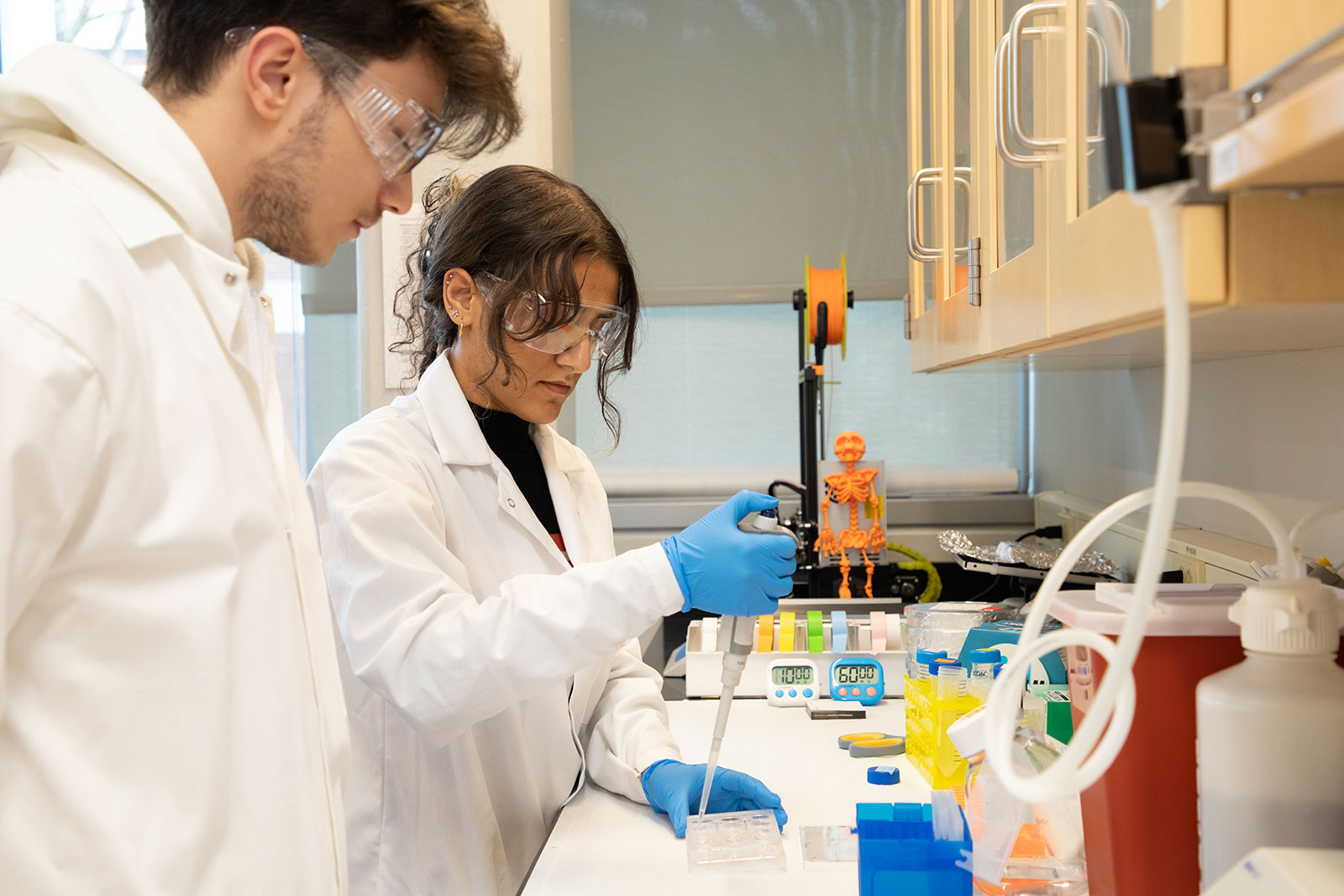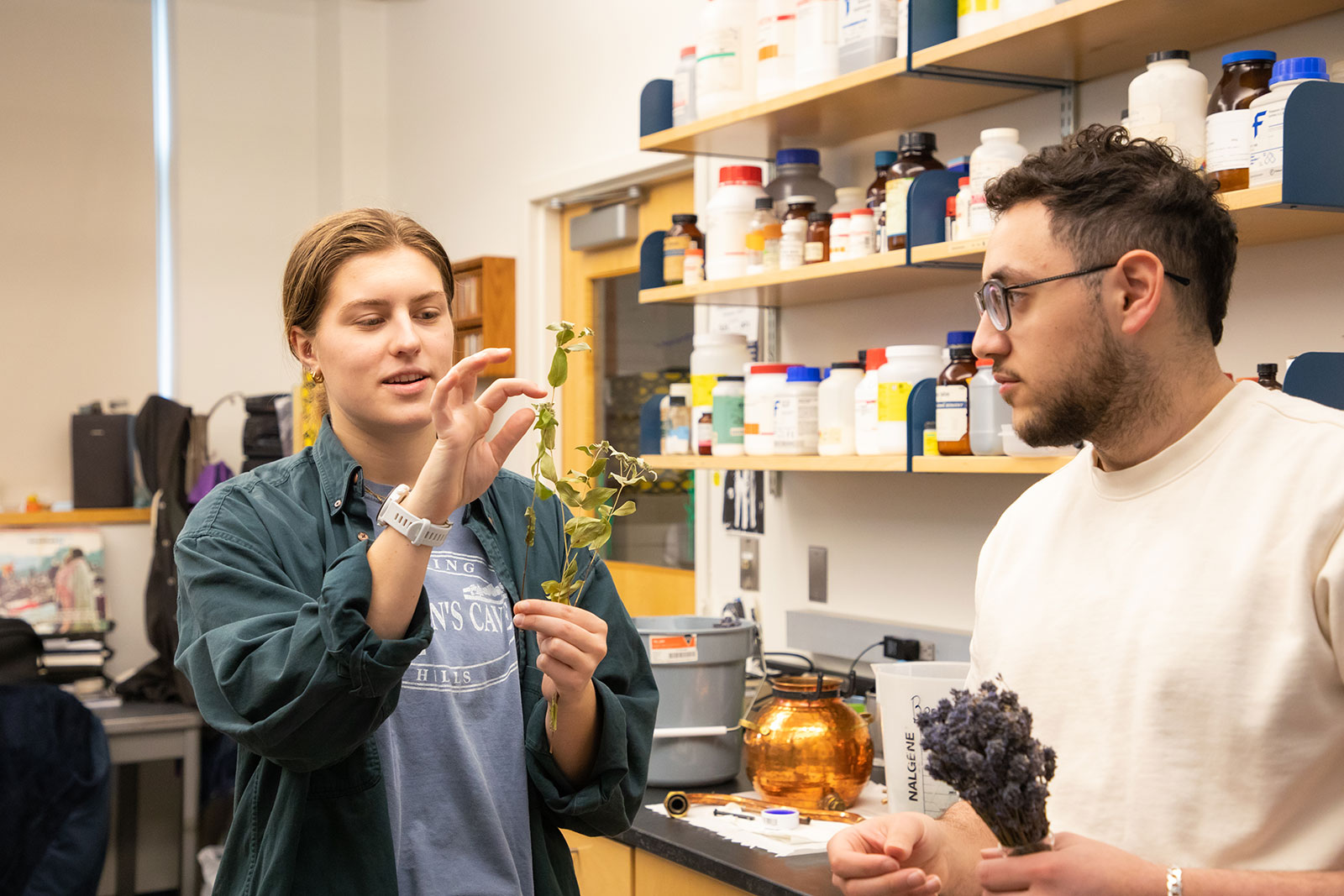Related Resources
Discover the Science of Life
 Biology is an extensive field that includes biochemistry, molecular biology, cell biology, microbiology, genetics, anatomy, physiology, embryology, ecology, evolution, field biology, and animal behavior. At the University of Michigan-Dearborn, our expert faculty and extensive network of laboratories and science learning centers ensure that as a biology major you’ll receive broad training that opens a world of opportunities.
Biology is an extensive field that includes biochemistry, molecular biology, cell biology, microbiology, genetics, anatomy, physiology, embryology, ecology, evolution, field biology, and animal behavior. At the University of Michigan-Dearborn, our expert faculty and extensive network of laboratories and science learning centers ensure that as a biology major you’ll receive broad training that opens a world of opportunities.
Whether you plan to seek a biology-related job immediately after graduation, to pursue graduate study in biology or any of the health professions, or to get a secondary teaching certificate in biology, our program will prepare you to pursue your dreams.
Where a Biological Sciences Degree Will Take You
Our biological sciences degree is designed to prepare you for success in a range of fields. Our recent graduates hold jobs like division director, environmental scientist, epidemiologist, faculty member, forensic scientist, laboratory manager, microbiologist, science teacher, senior clinical research associate, wildlife habitat biologist, and others for a variety of employers. Some of these include the Cold Spring Harbor Laboratory, U.S. Agency for International Development, EnviroSolutions, San Francisco Department of Public Health, Oakland Community College, Michigan State Police, Wayne State University, Elba Laboratories, National Park Service, Dearborn Public Schools, Merck, and DTE Energy.
In addition, our students are regularly accepted into graduate programs in the sciences and professional preparation programs for physicians, physician assistants, dentists, pharmacists, and veterinarians.

